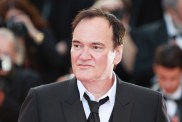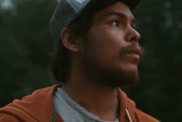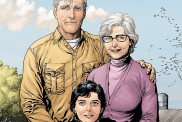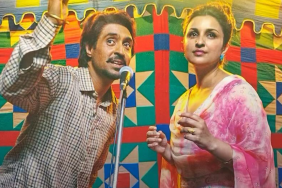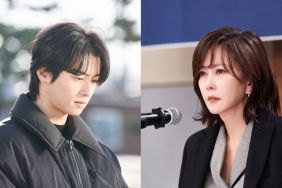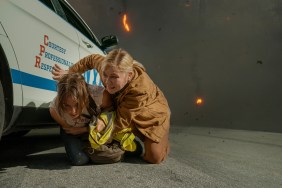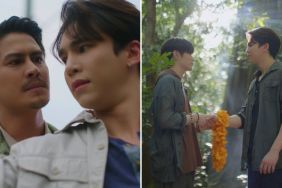
Director Joshua Oppenheimer‘s The Act of Killing is a documentary that has virtually every critic raving and it’s one hell of a disturbing watch. The film’s focus is Indonesian gangsters who, following a military coup in 1965, killed millions of opponents of the new regime in less than a year.
Most were killed as Communists, but that was a term that seemed to pretty much include anyone that got in their way from ethnic Chinese to intellectuals that opposed their views. And the killings were brutal, from decapitations to strangulation by wire. The decision to use wire, as we learn from one of the death squad leaders in the film, was because beating people to death was simply too bloody and disgusting to clean up.
What makes Oppenheimer’s documentary instantly fascinating is the fact he is able to travel to Indonesia and sit down with the very members of these death squads as they not only describe to him when, where and how things went down, but they are openly excited about re-enacting the murders for the camera.
The result of what you see finds those Oppenheimer documents as rarely remorseful, some almost surprised they got away with it, some jubilant and defiant, but over the course of the film’s two-hours the main subject, Anwar Congo, goes through something of a strange transformation. He isn’t willing to admit what he did is wrong, but to deny the fact he recognizes what he did is wrong is missing the point.
Congo realizes he can’t admit he’s wrong because he’s afraid of what that may mean to him psychologically. After re-enacting a moment of strangulation where the wire was placed around his neck, he can hardly take it. Congo begins to dry heave and hyper-ventilate only to later say he now believes he now knows what it was like to be in the shoes his victims. He’s unable to see the difference between his re-enactment and the reality of death his victims faced. Let me rephrase that, he’s unwilling to admit the difference…
It’s this denial that’s so fascinating and it goes even deeper than that. Congo almost sees himself as a victim of his own crimes, telling a story of the nightmares he suffers as he sees the eyes of a victim whose head he had just chopped off staring at him. He wonders to himself why he didn’t shut the man’s eyes before leaving him to rot and it’s this tiny detail he focuses on. The one mistake of not closing the eyes that stared up at him from the bloody ground is what haunts him, not the act itself.
Congo is just one of the subjects however, others will tell stories of raping 14-year-olds while others laugh, some admit what they did was wrong and are simply happy they got away with it and others you’d be hard-pressed to convince me they wouldn’t kill someone this very instant as I see no remorse or moral code in their eyes.
What I wondered, however, when I watched this film was What’s the point? Why am I watching? After watching the first hour of the film I was hit with this thought of, “Yeah, these are bad people. I get it. They should be imprisoned if not sentenced to death for their crimes.” Now I realize it’s not a film to be comprehended upon first viewing and certainly not after the first hour. Beyond that, it’s almost not a film about the people on screen, but instead the people in the audience, but most importantly satisfaction the truth is now getting out there.
For starters, the film is being secretly screened in Indonesia to dodge potential censorship as all films in Indonesia must first be vetted by the government. Quoted by The Christian Science Monitor, Handy Pernando, a 23-year-old Indonesian said after seeing the film, “I’m still in shock… I knew the government was lying to people, but now I’ve been awakened.” Additional quotes show signs of anger, fear and a want for some sort of revenge.
There is another level of importance, which is for those that don’t live in Indonesia. As Oppenheimer recently discussed on The Daily Show, the events documented in the film went on while the U.S. turned a blind eye to the killings and in fact cooperated in some instances.
Two quotes from the death squad leaders stuck with me from the film drawing scary parallels to the world we live in — “not everything true should be made public” and “war crimes are defined by the winners“. The public has been kept in the dark all these years and Indonesia’s history has been written by the men that carried out these atrocities, but both quotes remain telling of the world at large.
What the public should and should not know is a topic on the news almost daily and there are several places in the world right now where similar instances such as what went on in Indonesia all those years ago (and those in control then remain in control today) can, will and are taking place elsewhere right now. Watching this documentary, examining a nearly 50-year-old slaughter can you look on and say it was right that no one stepped in to help and only now is light being shined on the situation?
It’s one thing to look at Anwar Congo’s denial of guilt, but isn’t there a point where the rest of the world has to accept some level of guilt for allowing such horrors to take place?
To find out where you can see The Act of Killing click here.
